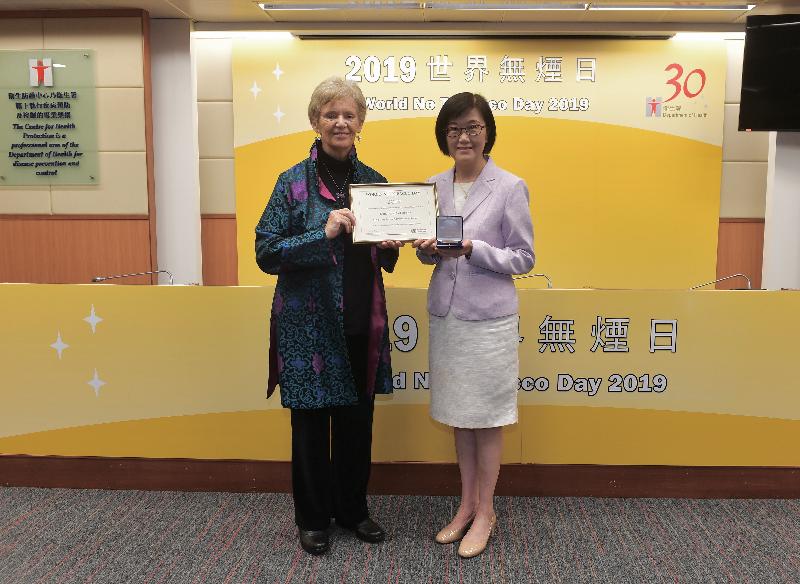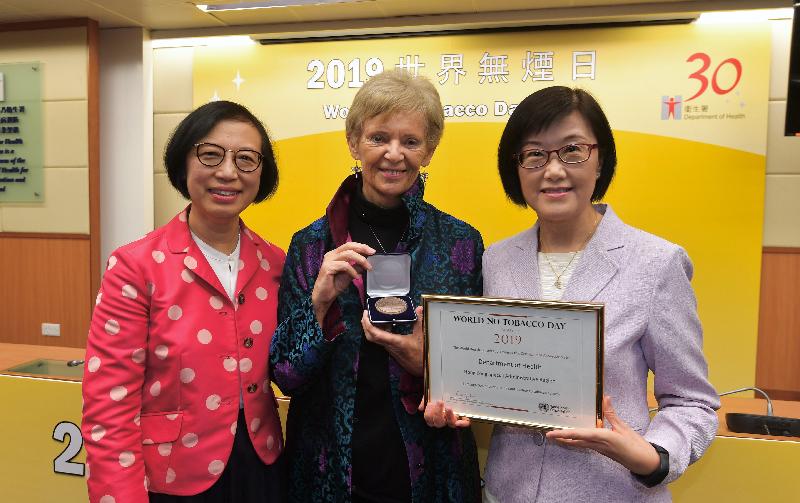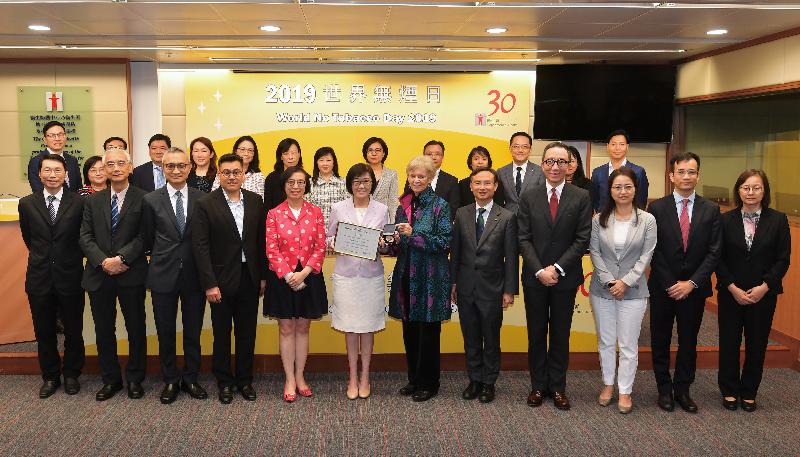Following is the transcript of remarks by the Secretary for Security, Mr John Lee, at a media session at the Central Government Offices on Fugitive Offenders and Mutual Legal Assistance in Criminal Matters Legislation (Amendment) Bill 2019 today (May 30):
Reporter: Some matters remain unaddressed. Is that people can still be extradited to places that do not have proper rule of law or proper human rights safeguard and why nothing is done to address this matter? For example, by giving more power to court?
Secretary for Security: First of all, the concept of extradition or surrender of fugitives is to ensure that people who have committed serious crimes will face justice and at the same time, ensure that the human rights are protected. That is the concept accepted internationally and actually is a result of resolution in the United Nations. You can see that different countries may have sign long-term agreements with countries which may be ahead of its own in the ranking of the rule of law or criminal justice system. The concept of surrender is not just to surrender (fugitives) to a particular jurisdiction, where you will regard that its system is ahead of yours or as good as yours. You can see that for example, countries such as the US and the UK have signed over a hundred of long-term agreements with countries which are lower (rankings) in the world. Some of them, some of these countries may rank differently. So the concept of surrender of fugitives is, on one hand, you, in appropriate cases, will have to ensure that fugitives face justice in the place where they committed the crime and where the evidence is stronger; and actually there is a duty for him to face trial for the sake of justice in front of the victims. So that is, first of all, an important thing to bear in mind. But of course, we have to ensure that fugitive when surrendered, his right is protected. So how do we do that? We do that, as I have explained to you, by ensuring that his right will be protected with guarantees given by the requesting jurisdiction. That is to ensure that he will have an open trial, he will have the right to lawyers, he will have time to prepare his own defense, he can cross-examine witnesses etc.
One policy intent of the bill is to make two major provisions with minimal changes and the provisions purely are to remove the geographical restrictions and then to ensure that the whole system can be activated by a certificate issued by the Chief Executive. Then the whole process will take place in the same way as we have been doing in all long-term agreements within these almost 22 years. So the court’s powers remain as they have been examining cases in these last almost 22 years smoothly without real problems. In fact, in one case which took place I think in Eastern Magistrates’ Court, after the court had heard the case, it found that the evidence was insufficient and the person was immediately released. So the whole system has been operating smoothly. The policy intent is to make the minimal change to the present regime and system. Only two provisions are deliberately put in to ensure that the geographical restrictions are removed and then the whole process can be activated by the Chief Executive’s certificate.
Reporter: Three recommendations that you have just proposed are really similar to the ones the pro-establishment camp talked about today. Isn’t it getting even more difficult for the government to gain support from the public, as it may give an image to the public that you are really inclined to the pro-establishment camp or even the business sector? My second question is about the seven-year imprisonment threshold serious crimes such as criminal intimidation is excluded and even it is defeating the purpose of amending the laws, because serious criminals will be evaded? Thank you.
Secretary for Security: I think I can answer both questions together. First of all, I have emphasised in my beginning that we received views from a lot of people in different sectors. These include organisations of course, even from the representatives of other governments, and also some academics and legal practitioners as well. The opinion that we have heard is that since it is a stopgap measure, we should deal with it cautiously. And we should aim at dealing with heinous or the most serious crimes. As a result of all these opinions, we have to make a decision how we can strike a good balance. Because it is only a supplementary measure to the main policy of signing long-term agreement with jurisdictions, so we think that dealing with the most serious crimes do strike the right balance. And seven years (of imprisonment) or above is the usual kind of offences that will be dealt with in the High Court and that is easily understood by people of Hong Kong. So by comparing to what the High Court will usually try, we think that seven (years of imprisonment) or more is a right balance.
Reporter: Secretary, can you justify why it is seven years but not five years? Is it largely to do with the concerns of the Mainland’s legal system, because you are fully aware that the Mainland legal system upgrading it to five years or seven years has more or less the same effect on the legal system of the retrospectiveness? Also you have repeatedly stressed on the urgency of this bill, on pursuing the Taiwan case. Would the government apply the same urgency in dealing with certain Macao cases to co-operate with the Macao authorities over a fugitive? Thank you.
Secretary for Security: Well, I really do not understand what you are getting at in your second question, but I will answer your first one. In regard to raising the threshold from more than three years (of imprisonment) to seven years or more, I have explained that we have heard views about dealing with the most serious or heinous crimes on a case-by-case basis will be most appropriate, because it is a supplementary measure to the long-term agreement that will remain our main policy intent. Since it is only on a case-by-case basis, we think that we need to strike a right balance. Opinions indicating that we should deal with heinous and most serious crimes and making reference to the usual kind of cases that will be tried in the High Court will be easily understood by people of Hong Kong. We think that is the right balance to strike. It has nothing to do with the law of another jurisdiction. In fact, if you talk about jurisdictions which practise the continental law system, usually they will have a limit of proceeding in respect of crimes. Since you have mentioned the Mainland, the Mainland’s lapse of time standard usually said at a five, 10, 15, or 20 year’s level. So there is no comparison at all with the level or the threshold that I have just suggested.
Reporter: What is your response towards the judges’ concern? Do you think a new change is able to address the concerns raised by the judges towards the bill?
Secretary for Security: If you do look at the bill carefully, you can see that there are only two changes, the whole regime is not changed, the system is not changed. There are only two changes. One is to take away the geographic restrictions, the other thing is to allow the Chief Executive to start the process of handing over this man to the court. Then the court will look at the case in the same way as the court will do in each and every surrender case that has been heard in Hong Kong in almost 22 years. We have not heard anything that indicates that the system is not working. One policy intent which I wish you to notice, I want to make these two changes with minimal effect on the whole regime. That is why you can see we are only doing these two changes and the whole system, the whole regime, the whole way of dealing with surrender cases remains as it has been in the past 22 years. And I have full confidence in the judges in Hong Kong since they have been looking at all these cases in the past 22 years without any problem. I have full confidence in their professionalism and impartiality.
(Please also refer to the Chinese portion of the transcript.) read more






